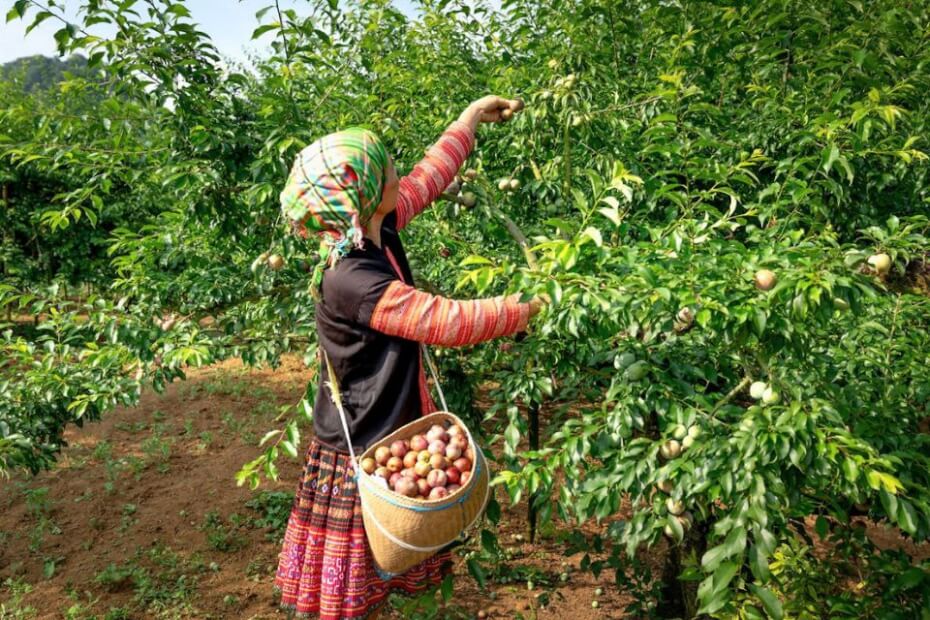
The United Kingdom (UK) government has extended the Seasonal Worker visa route for the horticulture and poultry industry.
UK Environment Secretary Steve Barclay announced that the Temporary Worker visa route for foreign crop and fruit pickers will run until at least 2029, reported The Telegraph.
The decision comes after concerns that there will not be enough farm workers, especially during harvest season.
Staff shortages on farms, as well as in the supply chain, could put food production at risk.
Barclay said 45,000 visas for seasonal workers will be available in 2025, the same number as the year before.
Part of the quota allocated to the horticulture sector is 43,000, while the poultry sector gets 2,000 slots.
Quotas for the subsequent years, from 2026 to 2029, will be announced later in the year.
The Environment Secretary said extending the Seasonal Worker visa route will give farmers time to adjust and stop relying on foreign workers.
“Businesses do best when they can plan effectively for the future,” Barclay said.
He added that the UK government is “boosting funding for the cutting-edge technology” to help farmers ease out of employing foreign workers.
Barclay refers to an investment of £50 million in mechanizing food packing plants and developing new robot fruit and crop pickers.
The British government hopes technological advances could replace foreign farm workers and close the Seasonal Worker visa route entirely.
What is the Seasonal Worker visa route?
The Seasonal Worker visa route allows foreign laborers to come to the UK for up to six months to work in the horticulture and poultry sector.
In the horticulture sector, most seasonal workers typically come over in the summer during fruit and vegetable picking season. They can apply any time of the year.
Conversely, seasonal poultry sector workers can stay in the UK from 2 October to 31 December each year. Applications should be submitted by 15 November each year.
For an application for the seasonal worker visa route to be considered, they must also meet the following eligibility requirements:
- They must be aged 18 or over.
- They have an employer or work sponsor and a valid Certificate of Sponsorship (CoS). A CoS contains the details of the job offered to foreign workers, which should fall within horticulture or poultry production.
- They have enough money, at least £1,270, to support themselves in the UK for the first 28 days. This requirement is waived if their employer has agreed to cover the cost of living for the first month in the UK.
- They have paid the visa application fee and Immigration Health Surcharge. The Seasonal Worker visa fee is £298, while the immigration health surcharge fee for adults is £1,035.
- They have provided any required biometric information.
- They do not fall under the general grounds for refusal.
Seasonal workers may study while on the job, with some courses requiring an Academic Technology Approval Scheme certificate.
However, seasonal workers cannot take on a permanent job or work a second job outside their CoS.
Additionally, they cannot use public funds or bring dependants or family members to the UK.
The Seasonal Worker visa route is not a path to settlement or permanent living in the UK. It does not contribute to the UK’s net migration.
Scotland’s long-term labor needs
Scotland’s Minister of Agriculture, John Lamont, welcomed the extension of the Seasonal Worker visa route.
“While we will always support homegrown labor, we appreciate that the industry is still in need of extra help,” he said, as per The Press & Journal.
He added that the “package of agriculture initiatives will help ensure long-term certainty for labor needs.”
This will “make the UK food supply chain the most cutting-edge in the world,” Lamont said.
Lamont stressed, “The produce grown in Scotland is world-class, and it’s only right that we make sure farmers and growers have the resources they need.”
The UK government introduced the Seasonal Worker visa route in 2019 before the UK left the European Union (EU).
It initially offered only 2,500 visas to foreign seasonal workers from outside the EU bloc.
Post-Brexit, the British government increased the visa slots for seasonal workers to 30,000 in 2022.
However, former UK Prime Minister Boris Johnson pledged to start winding the scheme down the year before.
He promised to taper down the allotted slots starting in 2023 amidst concerns that the visa route is being abused.
At that time, Johnson said the farming sector would have to increase pay and working conditions to attract more local staff.
This year, the UK government is teaming up with the Food and Drink Sector Council’s Attractiveness Project Group.
This will give the horticulture sector the initial funding to start The Institute for Agriculture and Horticulture (TIAH).
The horticulture sector is also partnering with the Department for Work and Pensions to create regional hiring plans.
These plans will use the Jobcentre Plus network to help job seekers gain the necessary skills and know-how.

